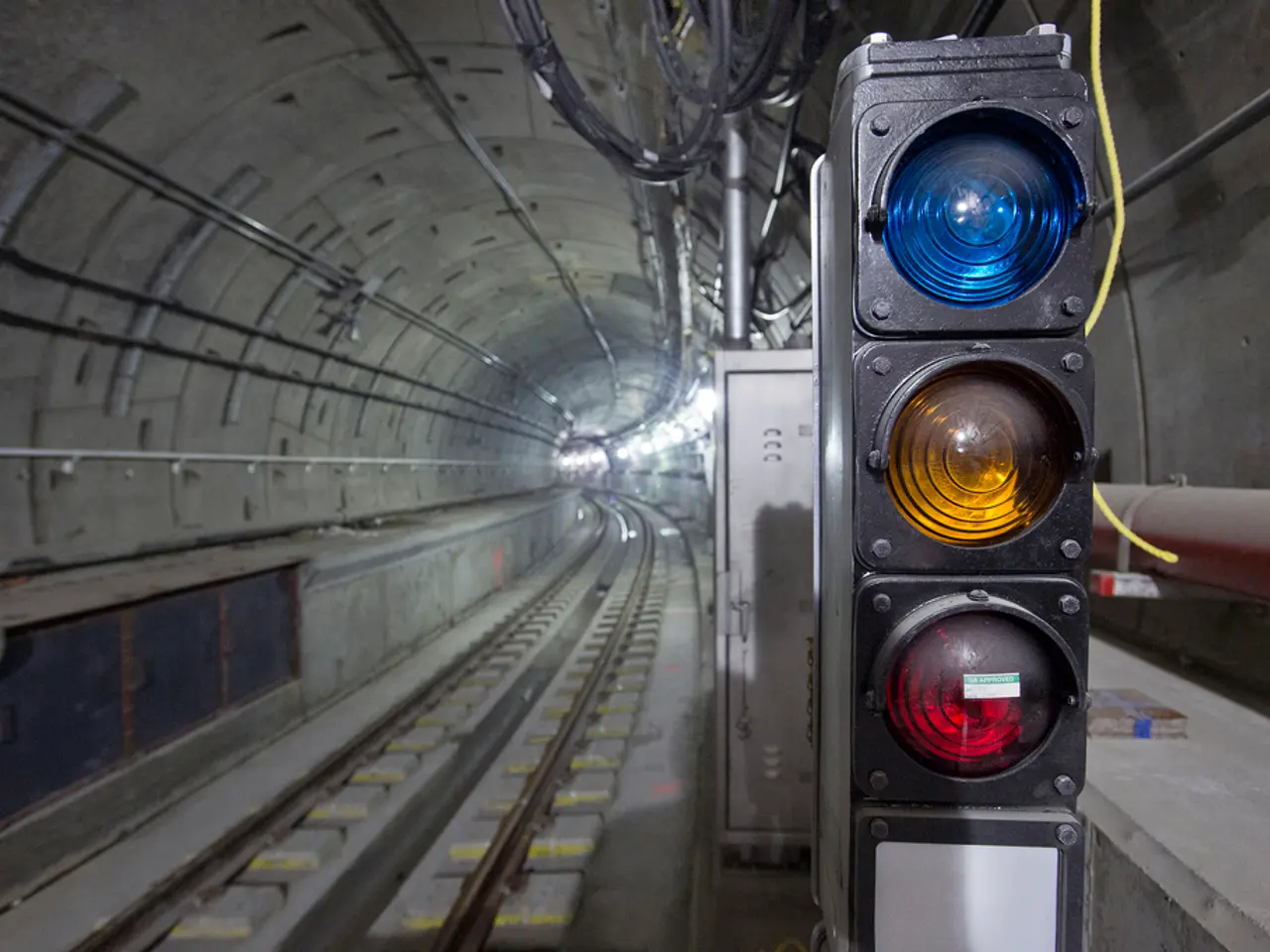GM Financial Analysis and Tariff Defense Discussion on WardsAuto Podcast Featuring David Welch from Bloomberg News
In the realm of automotive news, General Motors (GM) has made significant adjustments to its production strategies in response to the Trump Administration's tariffs, particularly the 25% tariffs on imported autos.
For the past 11 years, Mary Barra has been at the helm of GM as its CEO, a tenure that has seen her navigate the challenges posed by an administration whose goals are hardly aligned with GM's. In this context, GM is investing $4 billion to expand and reoptimize its manufacturing footprint across several U.S. plants in Michigan, Kansas, and Tennessee, with a goal to produce approximately 2 million vehicles domestically over the next two years.
Key production changes include the Orion Assembly in Michigan, which will transition from electric vehicle production to producing the next generation of full-size trucks and SUVs powered by internal combustion engines (ICE). The Fairfax Assembly in Kansas will build the ICE-powered Chevy Equinox, the next-gen Chevy Bolt electric vehicle, and new affordable EV models. Spring Hill Manufacturing in Tennessee will produce a refreshed or redesigned ICE-powered Chevy Blazer.
Electric pickup trucks based on GM’s BT1 platform, including Cadillac Escalade IQ, Chevy Silverado EV, GMC Sierra EV, and GMC Hummer EV, remain concentrated at the Factory Zero plant in Detroit.
These production shifts are a direct response to tariffs that significantly raised the cost of importing vehicles from Mexico, where GM previously manufactured many models. As the largest importer of finished vehicles into the U.S. in 2024, GM aimed to mitigate an estimated $5 billion exposure to tariffs by moving production domestically.
The Trump Administration provided some tariff relief measures, such as a temporary 15% rebate for vehicles assembled in the U.S. to incentivize domestic manufacturing and job creation. However, automakers have noted that shifting production is a complex, costly process that takes months to years and involves significant investment.
David Kiley, the host of the WardsAuto podcast, and David Welch, the Detroit Bureau Chief for Bloomberg News, have been discussing GM's strategies in the era of tariffs. They have highlighted the challenges faced by GM in aligning its production strategies with the goals of the Trump Administration.
President Trump has publicly supported these moves and even suggested possibly increasing tariffs further to accelerate domestic manufacturing investments.
In conclusion, GM’s response to the Trump tariffs has been a major production shift back to the U.S., involving billions of dollars in new investment to reallocate manufacturing from Mexico to U.S. plants, with a focus on trucks, SUVs, and some EVs, supported by tariff rebates and policies encouraging domestic production.
- The supply chain in the automotive industry, particularly for General Motors (GM), has been affected by policy-and-legislation changes, with the 25% tariffs on imported autos imposed by the Trump Administration playing a significant role.
- In response to these tariffs, business strategies within the industry have evolved, with GM investing $4 billion to reoptimize its domestic manufacturing footprint across several U.S. plants, aiming to produce 2 million vehicles within the next two years.
- The transportation sector, including transportation of parts and finished vehicles, has also been impacted, as GM moves production from Mexico to U.S. plants to mitigate estimated $5 billion exposure to tariffs.
4.The shifts in production have been subject to discussion in general-news and business circles, with experts such as David Kiley and David Welch highlighting the challenges faced by automakers in aligning their production strategies with political goals, as seen in the case of GM during the Trump Administration.




